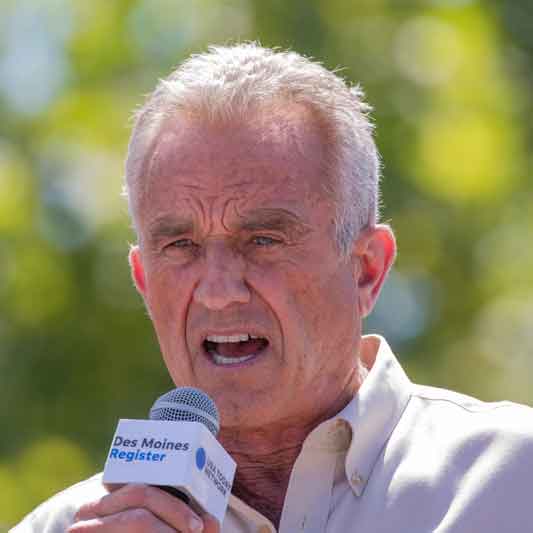Health and Human Services Secretary Robert F. Kennedy Jr. has put forward a non-traditional method to tackle the avian flu outbreak affecting poultry farms in the United States: permit the virus to naturally progress through flocks as opposed to eliminating infected birds.
His contentious proposal, revealed during a March 11, 2025 interview on Fox News, has sparked significant backlash from veterinary scientists, government officials, and public health specialists. They caution that such a plan could have severe repercussions for both the poultry industry and public health.
“They should isolate them. You should let the disease go through them and identify the birds that survive, which are the birds that probably have a genetic inclination for immunity, and those should be the birds that we breed,” Kennedy said during the interview.
Kennedy suggested that this method could help find birds with natural immunity to the virus, potentially maintaining genetic resistance. Nonetheless, experts have largely dismissed this notion, pointing to the high mortality rates of highly pathogenic avian influenza in poultry.
Since January 2022, more than 1,600 outbreaks have been reported on U.S. farms, impacting over 166 million birds. The current policy, overseen by the U.S. Department of Agriculture (USDA), mandates farmers to cull entire flocks when the virus is found – a practice Kennedy and USDA Secretary Brooke Rollins have suggested revising.
The current strain of highly pathogenic avian influenza is notably lethal for chickens, with death rates between 90% and 100% within three to four days of infection. Poultry disease experts note this rapid progression leaves no opportunity for birds to develop antibodies that might grant resistance.
A poultry veterinarian with direct experience in bird flu outbreaks emphasized that letting the virus spread would be disastrous. Most infected chickens and turkeys die, and the process is slow and painful, taking several days for nearly all of them to perish. The veterinarian suggested the idea is impractical and inhumane.
Aside from animal welfare issues, experts warn that allowing the virus to spread unchecked would greatly enhance the risk of mutation into more dangerous forms. Each infected bird offers the virus a chance to evolve, potentially acquiring traits that could make it more transmissible to humans or other animals.
The current outbreak has already demonstrated concerning transmission patterns. While previous outbreaks were managed through culling and containment since the 1980s, the current strain has discovered new methods to spread among poultry farms, challenging existing biosecurity protocols.
Under Kennedy’s proposed approach, farm workers would face heightened risks. Increased exposure to infected birds would raise the likelihood of human infection, potentially paving the way for a pandemic strain.
Kennedy has also raised concerns about vaccination as an alternative strategy. In separate remarks, he warned against vaccinating poultry during the ongoing outbreak, highlighting the risks of “leaky vaccines” that he argued could transform flocks into “mutation factories” for the virus.
The economic impact of the bird flu outbreak has already been significant, with egg prices more than doubling due to the culling of infected flocks. Kennedy’s proposal comes when only 10 states have fully implemented the current strategy of culling infected flocks and enforcing biosecurity measures.
Researchers and public health officials are tackling the outbreak on multiple fronts. Scientists are studying the virus’s spread and enhancing biosecurity measures. They are also investigating genetic variations in poultry immune responses to develop more effective vaccines, though Kennedy has expressed skepticism about this approach.
Kennedy also suggested that wild birds might have natural immunity to the virus. However, the Centers for Disease Control and Prevention (CDC) has documented that the H5N1 virus has killed various wild species.
While the CDC currently indicates that human risk from the outbreak remains low, health officials stress the importance of continued vigilance and effective containment strategies to prevent potential spillover to humans.
Kennedy’s role as HHS Secretary does not include agricultural policy, which is under the USDA’s jurisdiction. The USDA has not shown any intention to alter its current culling requirements in response to Kennedy’s suggestions.
Experts continue to support the existing strategy of culling infected flocks, asserting it remains the most effective and responsible method to control the bird flu outbreak while safeguarding both animal welfare and public health.

